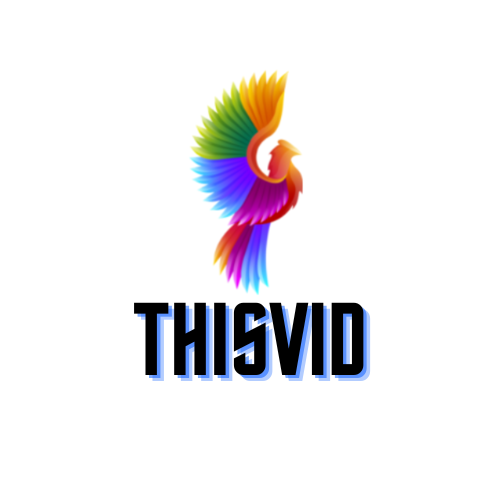Yandex Games, a collection of interactive digital experiences, serves as an innovative educational platform. This exploration showcases the integration of entertainment with academic content, providing a novel educational resource. Educators and students can utilize Yandex Games to make challenging topics more accessible and to enhance cognitive retention through immersive, tailored challenges.
Understanding the Basics of Yandex Games
Yandex Games features an assortment of online games that target cognitive enhancements, such as memory, focus, and analytical skills. Educational games might involve solving arithmetic puzzles or mastering language through word games, thereby becoming a choice tool for teachers. Educators can incorporate these games into their instruction, utilizing their engaging nature to captivate students.
For instance, history-themed games might guide players on adventures through pivotal eras, promoting exploration amidst entertainment.
Additionally, Yandex Games prioritizes a secure and accessible gaming experience, featuring safeguards like SmartCaptcha and a support system for technical assistance.
The Benefits of Using Yandex Games for Education
Yandex Games, as an educational medium, has distinct advantages. It deepens student engagement with material in an immersive manner.
For example, a narrative-driven language game can sharpen grammar proficiency subtly and enjoyably. The platform supports varied learning preferences and offers instant correction, aiding immediate understanding of concepts. Furthermore, the accessibility of Yandex Games promotes self-paced education, an asset for distance learning environments.
Selecting the Right Yandex Games for Educational Purposes
Choosing the appropriate Yandex Games for educational ends requires an assessment of the game’s focus and developmental intent. Games with scalable difficulty levels can both challenge and accommodate learners, and clear instructions are crucial for learner independence. Progress tracking and reward systems can give students a sense of accomplishment while aiding educators in assessing learning advancements.
Ah, Spider Solitaire, the eight-legged enigma of the card game world. Unlike its serene cousin Klondike, Spider demands a whirlwind of strategic leaps and calculated risks. Imagine this: eight cascading columns of face-down cards, each a venomous web waiting to be unraveled. Your weapon? A single deck and a mind as sharp as a spider’s silk.
Integrating Yandex Games into the Curriculum
Yandex Games encompasses a variety of interactive experiences suitable for educational contexts. These games can be woven into lessons to complement traditional educational goals, simultaneously providing amusement and motivation.
For example, strategic games may bolster decision-making skills, while other games can reinforce lessons in mathematics and languages. Skills such as typing can also be enhanced through specific games that focus on keyboard proficiency.
Best Practices for Facilitating Yandex Games for Education
Creating a Balanced Learning Environment
A balanced learning environment addresses diverse educational needs. Incorporating games should involve a mix of enjoyment and instruction. Games with adaptive difficulty enrich the educational progression without inducing frustration. Providing constructive, guiding feedback rather than simply marking errors can motivate students while nurturing their problem-solving skills. Furthermore, collaborative elements encourage teamwork and communication.
Support and Guidance for Students
Support systems ensure smooth navigation through online educational resources. A support team stands ready to assist with challenges, while FAQs and interactive help centers preempt routine difficulties.
Additionally, feedback from students helps in refining the educational platform, and security features such as SmartCaptcha maintain easy access while safeguarding users.
Monitoring Progress and Engagement
Effective use of educational games necessitates methods to monitor learner progress and engagement. Utilizing performance metrics, interactive feedback, activity analytics, and adaptive game challenges aids educators in customizing curriculum and keeping students invested in their learning.
Addressing Challenges and Solutions
Dealing with Distraction and Time Management
Optimizing focus while using educational games involves strategies like timing sessions and dedicated quiet workspaces. Implementing a structured schedule that incorporates gaming within educational goals, humiliating memory retention, and curbing excessive gameplay can enhance concentration. Feedback systems contribute to a student’s self-monitoring and time management.
Ensuring Educational Value
Selecting educational games necessitates emphasizing learning outcomes. Successful games provide clear information, track in-game progress, challenge users at varying skill levels, and offer feedback supporting understanding and memory. They also prompt strategic thinking and problem-solving, occasionally encouraging collaborative efforts.
Technical Issues and Their Resolutions
Educational gaming can present technical setbacks, such as accessibility woes or performance lags. Addressing these include ensuring current software, maintaining device and internet performance, offering simple account management solutions, balancing security with user-friendliness, and designing intuitive interfaces.
Future of Learning with Yandex Games for Education
Emerging Trends in Educational Gaming
Educational gaming is incorporating trends like AI-driven personalization, complex problem-solving, team-based learning, inclusivity in design, and learner progress tracking. Such developments promise a transforming learning tool aligned with educational advancement and holistic development.
The Role of Analytics in Game-Based Learning
Analytics bolsters the evolution of game-based learning by revealing learner engagement patterns, thereby guiding improvements in educational content. Analyzing performance data and direct feedback can shape individualized and successful educational experiences, forging a responsive learning landscape.
